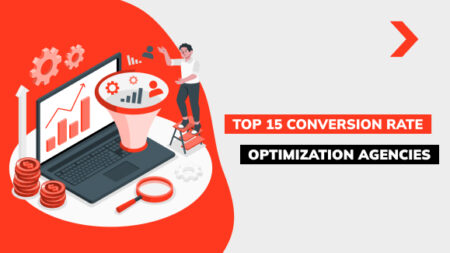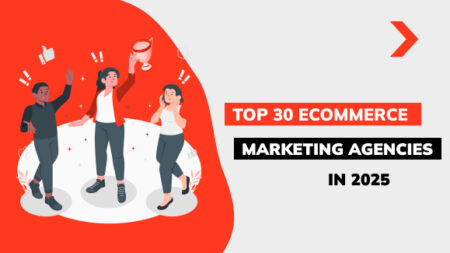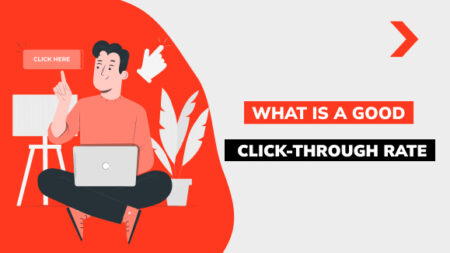Ecommerce PPC Management: Drive Traffic and Sales
Speaking about digital advertising, many marketers recommend considering the pay-per-click (PPC) model in any business strategy. This is a popular way to advertise products to the intended audience, which can learn about offerings with just one click through the ad link that leads to the landing page. An initiated e-commerce PPC campaign will be displayed on various websites to convince target users to take a specific action, such as purchasing your item. This way, you can also drive up more traffic to the website.
What is PPC for Ecommerce?
This advertising strategy could assist online retailers in reaching out to undiscovered heights. PPC ecommerce is the most employed digital advertising method since it’s a scalable, data-driven approach with effective operation. PPC also provides immediate results by spending on website visits rather than attempting to establish those visits organically; it’s especially beneficial for ecommerce companies. Brings focused traffic to a product page; PPC could direct your digital marketing journey to increased sales and profits.
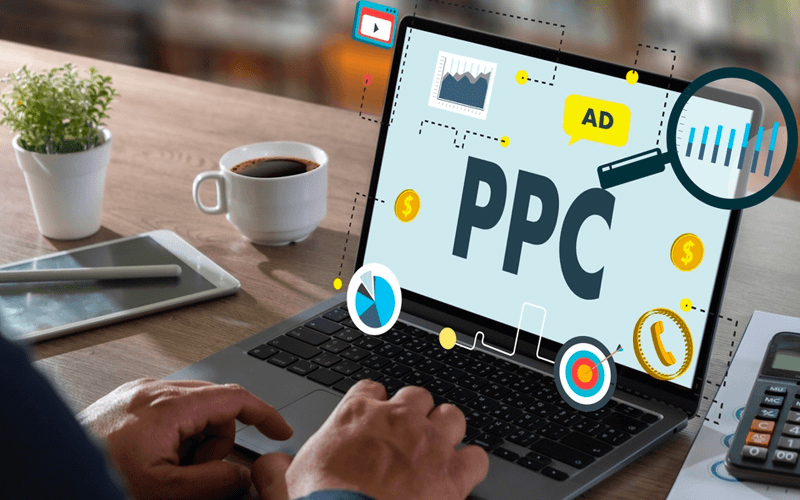
Moreover, in the PPC model, you bid on target search phrases and terms that the intended market segment is likely to enter when actively searching for items similar to yours. Ads with those keywords that dominate over the ads of market rivals should be designed with precision. They can take the format of the text, include various images, or create short videos intended to convince potential buyers to click through a button and be redirected to a retailer’s website.
The man who stops advertising to save money is like the man who stops a clock to save time.
Henry Ford
The most popular advertising platforms in ecommerce are Google. When accessing Google PPC, you can initiate a campaign in various ad formats, like shopping ads, and employ advanced targeting options. With Google’s influence and dozens of monthly searchers, your ecommerce business could address a broad audience. Even so, Bing suggests similar advertising options, but it’s slightly less competitive because it’s less crowded with people.
Ecommerce Advertising
This method of marketing products online is similar to subscriptions, newsletters, and other media formats. When people agree to look at your creatives, they are essential business targets. If PPC ads are shared through direct emails, prospects will likely consider only those products that meet their demands or can solve their pain spots. Therefore, the advertising newsletter must be highly personalized and relevant to the users.
Although both ecommerce subscription-based and digital advertising is effective, the first differs, entailing a template format with a short message sent only once. This format benefits consumers as they receive relevant advertising, for example, from reputable sources, while providers benefit from ecommerce advertising via email by adding a cost-effective pre-qualified channel. In this way, your ecommerce business can be granted an advantage in return on investment with the PPC model.
Ecommerce PPC Management
If your pay-per-click management is effective, the business is more likely to generate leads promptly. A recently developed landing page featuring a product or website on social media will immediately benefit you with an engaged and loyal audience. However, it’s important to understand all the fundamentals of digital advertising for online retailers before launching your first ad circulation.
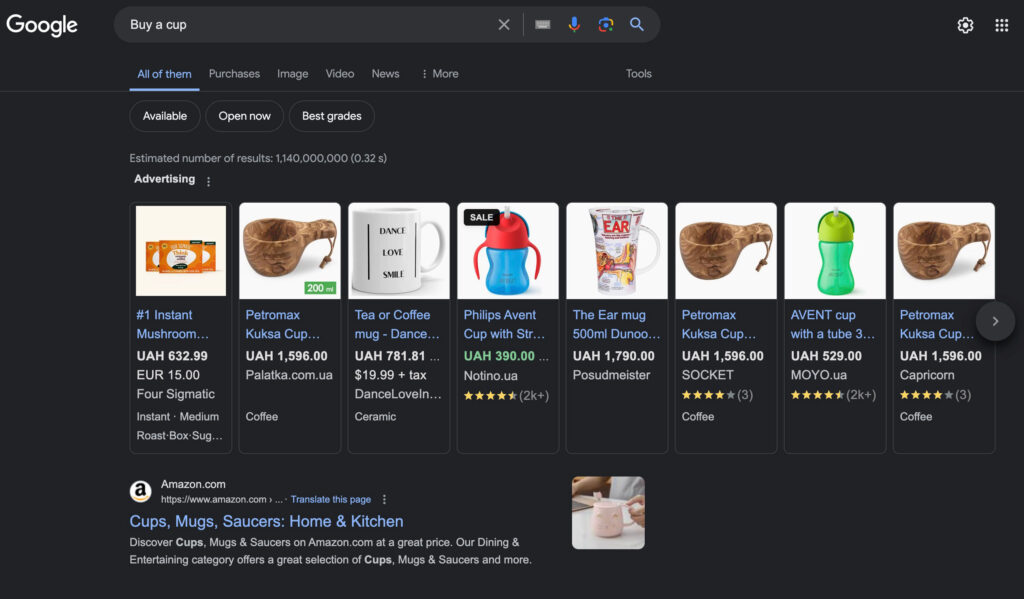
Managing PPC campaigns is a relevant method worth employing in your advertising journey. Compared with search engine optimization (SEO), which entails a long-term operation of driving up organic traffic, This management suggests a considerably shorter way to gain results. Still, they’re temporary and have a limited budget. However, this strategy also relies on keywords since the ads are placed on search engines like Google and Bing, which will be displayed in a way that aligns with users’ intent. For example, when typing the phrase “ad network,” only such advertising will be displayed for this request.
Understanding Ecommerce PPC
Thanks to targeted traffic, not only can you improve the ranking of a website, but you can also significantly increase sales or attract even more potential customers to your own business. However, utilizing ecommerce PPC in your business project is essential to success. We’re talking about pay-per-click advertising, or simply put, ” Pay-per-click.” It is precisely campaign management that must be considered as an essential factor.
Efficiency is doing things right; effectiveness is doing the right things.
Peter Drucker
Ecommerce PPC management is available to small businesses. You can attract buyers to your web portal through targeted PPC campaigns with pay-per-click. Moreover, many modern business owners must pay more attention to PPC ads’ power, strength, and advantages. Therefore, they must implement a manageable range of measures, opportunities, and actions to carry out their strategy. In any case, today, digital marketing PPC represents a targeted method that helps capture potential visitors.
The beauty of online shopping lies in its maneuverability. Shoppers can browse through hundreds of offers without leaving their couch. The problem is that consumer attention could be more precise and 100% reliable. The conversion rate will be zero if a website is poorly structured or lacks convenient navigation. That’s why targeted traffic is essential for successful online business, and PPC campaigns will help keep the company afloat.
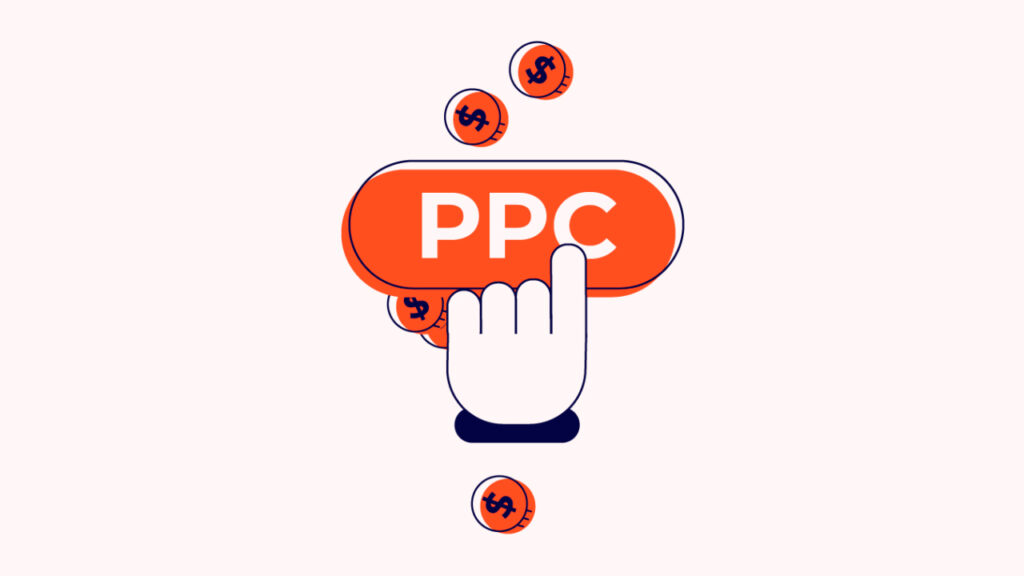
Why Use PPC for Ecommerce Sites?
It is known that the rating of PPC advertising is determined by two leading indicators: cost per click and ad quality score. Key performance indicators help assess the effectiveness of the ecommerce PPC strategy. They include:
- Number of clicks;
- CTR (click-through rate);
- conversion rate;
- consideration of cost factors.
The CPC bid is only sometimes the amount the advertiser will pay-per-click. It reflects the maximum amount that ecommerce PPC experts involved in promoting landing pages, ecommerce sites, and other online portals are willing to pay.
Benefits of PPC for Ecommerce
In addition to the real opportunity for rapid sales growth, managing PPC for retailers offers many other advantages. These online retail PPC services are implemented for various relevant reasons.
- Easy to Learn and Measure. PPC campaigns are much simpler than SEO optimization, which may take 1 to 3 months to see initial results. Many contextual advertising platforms offer built-in tracking features for crucial metrics. Access to real-time data allows for timely improvements to regular advertising and enhances performance.
- Provides Significant Control. Ecommerce PPC strategy allows for controlling ad launches on ecommerce sites, landing pages, or social media at specific times or even on particular days of the week. Ads can be completely turned off if necessary. With PPC, it’s entirely possible to control budget spending as well.
- Target Specific Traffic. Unlike SEO promotion, where advertisements are shown to a broad audience, with PPC, specific products can be promoted to specific categories of potential buyers. Online ads will be explicitly displayed on specific portable devices, at particular times of the day, and even in certain regions (cities, states, metropolises, etc.).
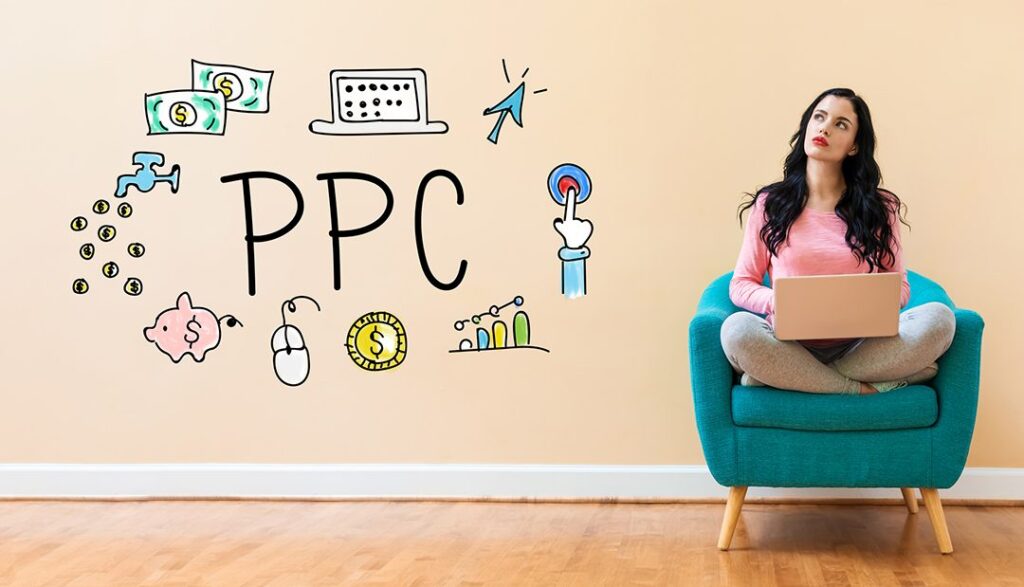
Why is PPC Marketing Essential for eCommerce?
Ecommerce PPC management is crucial for attracting targeted traffic when building a successful online business. Organic traffic can positively impact landing page rankings and increase click-through rates, online store sales, and the number of potential buyers.
Combining SEO tactics with campaign management tools can achieve excellent results much faster. However, many factors still depend on the initial strategy developed and the inclusion of specific ecommerce PPC services. So, if a client has just launched their startup and wants to establish an ad network immediately, they should focus on ecommerce advertising through PPC.
For the complete success associated with ad management, the focus should be on the quality of services and products offered to potential buyers, creating a specific PPC ecommerce campaign that should be well-optimized, and developing particular target web pages.
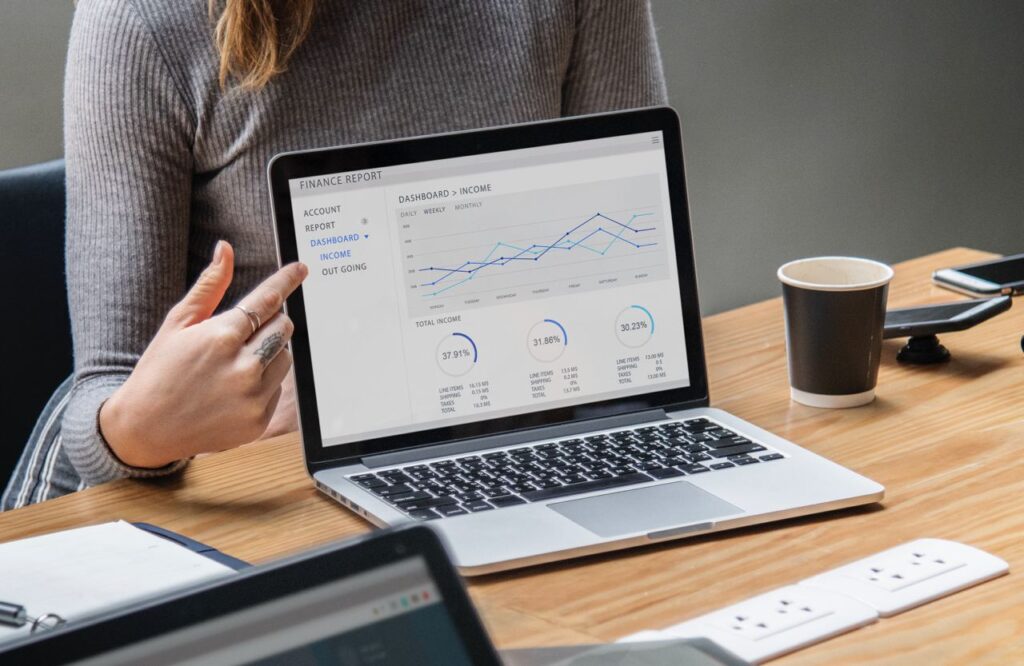
How Does PPC for Ecommerce Work?
Once a specialist creates specific advertising, it appears on the search engine results page and begins showing to online users searching for the same or similar query. Queries must always be clear, simple, and easy for online robot algorithms to understand. Essentially, PPC campaign management works like this: first, the business owner or brand promotion expert pays for each click of specific advertising, and then they can control their budget, setting the maximum cost per click.
PPC Advertising Basics
For internet advertising to be effective, it is essential to ensure its uniqueness, attractiveness, and relevance to the queries of a specific target audience of the business. Essentially, specialists involved in promotion need to select only the most relevant keywords. By using an attractive and clear, well-thought-out, and easy-to-understand headline and a maximally clear and readable short description, attention can be drawn to consumers and online visitors and persuade people to click on the launched advertisement. The higher the click-through rate, the better for the online store or other target web page.
Best Practices for Ecommerce PPC Management
Marketers and business promotion specialists in ecommerce PPC management often feel tempted to follow the advice of various online platforms as advanced methods. However, it’s better not to do this, as such approaches can only harm. It is essential to focus on improving advertising effectiveness; to do this, several best practices for e-commerce-centric PPC must be applied.
- using broad match;
- fully automated bidding;
- automatic acceptance of recommendations;
- including specific keywords for each group of online ads;
- using Single Keyword Ad Groups;
- including search partners;
- combining search and display advertising in Google and other systems;
- diversification across each channel.
Who Needs a PPC Management Service?
PPC is necessary for ecommerce business owners (websites, resources, online stores) and PPC specialists. These individuals can control budget spending in a business project and set up advertising correctly. Moreover, managing this technology makes it possible to understand what else needs to be done or improved to attract more customers to the website at a lower cost, who to show advertising to, and how to better “package” messages. Essentially, the service is necessary for experts and their clients to monitor the process during work on a business project.
Advanced Tips for Successful Ecommerce PPC Strategy
Expanding marketing efforts beyond a specific country can be exciting but, at the same time, a challenging step. Today, it’s not enough to duplicate or copy existing campaigns or change geographical targeting settings. It’s important to consider budget allocation across the business project, channels, account structure optimization, and localization, and think that a global ecommerce PPC real strategy can bring numerous benefits to the business.
Improve Your Ad Click-Through Rate (CTR)
To improve the rating of PPC for ecommerce, it’s crucial to target the right keywords, use particular irrelevant phrases sparingly but effectively, significantly narrow target parameters, maintains simplicity and ease in advertising campaigns, add a call to action, include a special offer or key phrase in the headline, visit the primary keyword in the URL, and always add emotions to the advertisement.
Keyword Research and Selection
For a PPC ecommerce real strategy to succeed, choosing keywords with commercial intent is essential. Queries, phrases, and expressions should be those most commonly entered into search bars when people intend to make a purchase. Additionally, branded and local keywords can aim at high commercial objectives.
Utilizing Negative Keywords
Negative keywords are necessary for click-through rate control. All selected negative keywords are those that business promotion experts do not want Google and other search engines to display specific ads for. For instance, if a brand deals with high-tech manufacturing, specialists should specify terms like “refurbished” or “used” as such “negative” words. This ensures that ads won’t be shown to online users who are unlikely to click on them.
Product Page Optimization for Conversions
If the promoted website lacks user trust, fails to meet reliability criteria, and constantly raises doubts among visitors, then advertising isn’t practical. To achieve high-level PPC ecommerce, ensuring the landing page fully meets the audience’s expectations is crucial. This involves restructuring the site’s layout, headlines, descriptions, textual content, and more.
Maintaining an Updated Product Feed
It is crucial to keep one’s advertisement on top. To achieve this, keywords must be included in the headline and description, all characters must be avoided, and the ad must not be complicated with unnecessary abbreviations. Additionally, simple language easily understandable by ordinary internet users is advisable.
Creating a Smooth Shopping Cart Experience
The shopping cart and checkout process are critical stages of purchasing that greatly influence a buyer’s decision to make a transaction. The convenience, comfort, and efficiency of these systems directly affect customer satisfaction and the likelihood of repeat shopping ads for various products or services through a particular selected site. The checkout process should be intuitive and simple and contribute to sales growth.
Leveraging Google Shopping Ads
Google Shopping is a product advertisement in Google search results. Such shopping ads are effective for all business projects. This service helps the target audience find products and services quickly, compare pricing policies, and more in search results. Ads are often displayed as electronic cards with images in Google Ads, along with a price, specific brand name, and website portal, appearing when people enter relevant queries in the search. This ensures targeted traffic to the website.
Running Dynamic Targeting Campaigns
Dynamic ads on Google Ads are specific Internet advertisements created automatically based on the content of a web resource or product feed. The target audience or specific buyer enters a relevant query, and a special algorithm of online robots compares it with the content and forms headlines. The online store owner only needs to add a specific description to Google Ads, and the ad is ready.
Ecommerce PPC audit
An ecommerce PPC audit is needed urgently if advertising campaigns encounter several problems — a large part of them consumes more money than they bring in profit, PPC campaign performance is worse than some time ago or doesn’t work at all if the specialist is not sure that contextual advertising based on the content of the website or product feed is set up correctly. An ecommerce PPC audit is also needed to obtain excellent traffic if the site is not generating conversions.

Why PPC is Crucial for Ecommerce Businesses
Pay-per-click is necessary to control expenses on ads paid for clicks and to understand how many impressions have been made. Such advertising is the fastest and easiest way to get much organic traffic to the promoted website. Using this technology, you can understand consumers, detail reports, take optimization actions, expand sales geography, and reduce customer service costs.
Aligns with the Ecommerce Business Model
Unlike SEO, ecommerce campaign management aligns with the model, allowing advertising to be tailored to popular search engines for an accurate and specific target audience. Advertising can be shown to specific groups of online users at particular times, on specific devices, or in specific regions (depending on the location of the ecommerce business).
Budget Control and Flexibility
Ecommerce PPC is necessary to control the advertising placement process. PPC experts can manage the timing of ad displays or even disable them when required. PPC management is also essential for simpler budget management, determining how much to spend each day, each month, or how much to pay for each click, and flexibility in this area plays an important role.
Granular Targeting for Specific Audiences
Successful targeting is primarily a deep understanding of the target audience. It’s not enough to set an age range or individual interests and themes. You need to understand what consumers live by, their pains and needs, and how the product, item, or service can solve them. Understanding customers’ hidden motives, their level of awareness, and the depth of underlying problems, specialists can convey the right message through advertising and work under the request, warm up customers, and increase the desire to communicate with the promoted business.

Explore Elit-Web’s Ecommerce Marketing Services
Regardless of the industry, specificity, or niche, if a business owner needs to better understand the profitability of advertising, evaluate the effectiveness of products, and more accurately determine the profitability of business from a PPC campaign in different regions, analyze conversions by types of gadgets, and learn about decision-making timelines for customers and clients, it’s worth turning to specialists from Elit-Web. They can skillfully apply e-commerce tools in practice.
Online Store Optimization
Elit-Web experts consider the optimization process for any online retailer a crucial step in business promotion. By implementing various technologies and tools, it’s possible to help the website rank better online, reach larger audiences, and engage potential customers in the purchase process. These actions will also increase the web portal’s conversion rate.
Product Optimization
Elit-Web’s team primarily focuses on optimizing specific products to enhance their ease of purchase through the website and create attractiveness through competent descriptions and textual content. The essence is to optimize the specific product. It’s important to skillfully and clearly create headlines, structure, and short descriptions for advertising and also ensure an attractive cart on the website so that the user enjoys making a purchase.
Ecommerce SEO Strategy
Elit-Web specialists always develop an individual, competent, and qualified strategy for each business project. This strategy includes not only defining goals that help align efforts toward the desired end result but also understanding how to improve growth indicators and achieve leadership, success, and website visibility at the top of popular and relevant search engines. The strategy is necessary to work on the project systematically, measure growth indicators, and understand what else can be improved.
Conversion Rate Optimization
The professionals at Elit-Web always work systematically to create a positive user experience. They focus on increasing conversion rates for the business website to achieve the highest positions and ratings in search engines. The goal of CRO is to increase the number of transactions and the average check without additional traffic by increasing the number of online sales.
FAQ
How does PPC work specifically for ecommerce businesses?
With PPC, a business pays every time someone clicks through your advertisement. The charges are defined by how much you bid for the ad, among other criteria. An advertiser initiates a PPC campaign, decides on appropriate keywords or placements, establishes a maximum bid, namely the most significant amount they’re willing to pay per click, and produces ad copy and design. PPC is an inexpensive advertising method that drives traffic to your ecommerce website, which is especially valuable if you sell high-value products.
What are the main benefits of using PPC for ecommerce websites?
Eventually, targeting with PPC is an effective instrument for any ecommerce business that allows them to acquire high-quality leads, increase sales, and gain online visibility in the crowded market. You can opt to spend as much or as little as you want to tailor your audience based on demographics such as location, language, and intended device. Your ad initiatives can be carefully monitored with PPC campaigns to determine their efficiency. To reach out to those results covering your marketing objectives, a business should run multiple ad campaigns for each term simultaneously.
What tasks does a PPC agency or specialist handle for ecommerce campaigns?
An ecommerce PPC consultant is an expert who manages and optimizes paid advertising campaigns for online retail enterprises. They are critical in marketing, assisting to meet your advertising and sales goals through well-managed and optimized paid advertising campaigns. They manage campaigns, which include strategy, design, implementation, SEO, and analysis. They assist you in reaching your target audience with personalized PPC strategies and achieving the highest potential ROI from your long-term campaigns.
Who should consider hiring a PPC management service for their ecommerce store?
Meaningful management enables you to manage the allocated budget more directly and effectively. In-depth management fosters keeping track of your finances and maximizing profits; therefore, outsourcing your ad campaigns to PPC experts frees up critical time for you to focus on other essential parts of your organization. The PPC managers we’ll assign know how to develop an effective campaign strategy, optimize ad efficiency, and monitor performance metrics results.
What factors influence the cost of a PPC campaign for an ecommerce site?
Your agency’s pricing model will majorly impact your ecommerce PPC spend. For example, if your agency suggests a performance-based pricing model, you would most certainly be charged with unstable sums every month. If they employ a flat-rate pricing strategy, your ecommerce business will always pay the same monthly amount. However, services that include managing PPC campaigns usually cost $500 to $5,000 per month.
How can I measure the effectiveness of my ecommerce PPC ads?
Key performance indicators (KPIs) are the main metrics advertising experts analyze to evaluate a campaign’s performance. They allow you to monitor and enhance the success of your sponsored search advertising in real time — conversion rate is one of the most important KPIs for any PPC campaign. It calculates the percentage of visitors who complete the targeted activity after clicking through your ad. To track this conversion rate accurately, include conversion tracking into your landing page and link it to your PPC provider.
What are the best PPC platforms for promoting ecommerce products?
Google Ads is the optimal platform for initiating and constantly managing PPC campaigns. It, formerly Google AdWords, is the largest PPC platform available on the global internet, with a 28% market share. They have the world’s largest search network and a more than comprehensive display network — it makes Google Ads simple for marketers to discover a hidden market segment and target it effectively. When you optimize your PPC campaigns through this software, you can drive up a high RO that other marketing methods can frequently reach.


